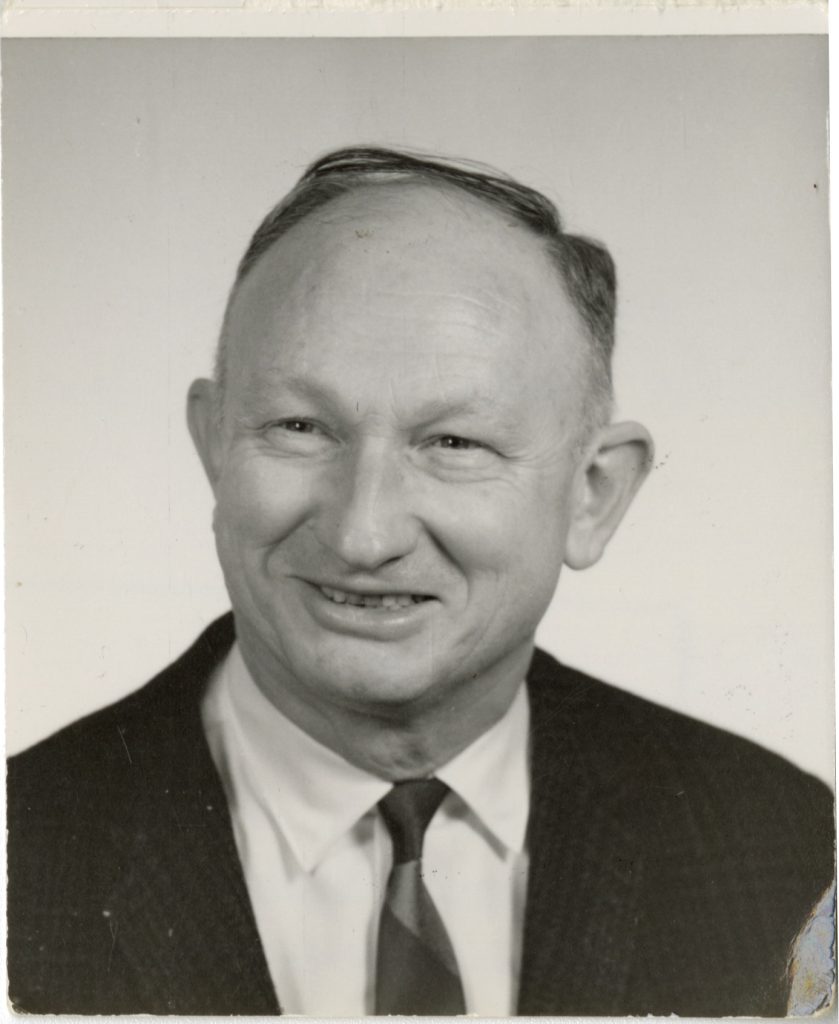Hargis Westerfield. ScotsIrish-Huegenot-Dutch. He began the Second World War as a clerk typist and ended as a member of a heroic front-line unit. As Historian Nathan Tye speculates -Hargis may be the most published poet of the war. His work appeared in classy little chapbooks from small presses and in books from internationally known publishers such as Dutton.
In later life he prized both his teaching and his writing. And his marriage to poet Nancy Gillespie Westerfield, whose work he unceasingly touted. He prized his role as a Lay Reader at the Episcopal Church, including weekly services at Mt. Carmel, a Kearney assisted living facility. Faulkner had said that, if he couldn’t have been a writer, he’d have liked to have been a Lay Reader in the Episcopal Church. Hargis took it very seriously and read from the prophets with the only voice appropriate to their message. And he loved his walks. Or rather, he loved walking.
Hargis and Nancy walked everywhere, most often together. Any Kearneyite could spot them blocks away. A local couple traveling in the British Isles spotted a couple walking down a country lane one behind the other and exclaimed that it looked just like Hargis and Nancy Westerfield. With good reason. It was Hargis and Nancy Westerfield.
They would walk clear across town to the vet with their cat before before walking half way back and boarding the train to travel somewhere. Hargis loved the trains, the railroad, and he could identify coming trains by sound and shape, by number.
But try this little short diary on for measuring the size of what shaped Hargis. It is reconstructed from his own Note on G Company in his book Words of Steel-Joined G Company. Here are excerpts and paraphrases:
Three days later G Company was sent to New Guinea. Tokyo Rose swore G Company would never leave New Guinea.
22 April 1944 – hit the Aitape beach. We walked in under water. Vivorito was sucked in by the propeller and drowned.
17 May 1944 – dug in beside Tementoe River. The enemy infiltrated at night. Fought a war of nerves in the jungle. Our Japanese Guide enfiladed. At Wakde the Zeroes came helling it out of the north.
19 June 1944 – my Third Platoon was led into an ambush. Chuck a grenade and run. Sling your rifle over your shoulder and climb around a cliff with both hands while they threw grenades at you.
That is enough to give us a good idea of what seasoned his writing and teaching. Enough to tell us why he found solace in scripture and walking. He could have written movie scripts with the best of them.
When the war ended, having seen himself published by a major publishing house, he also saw the popularity of WWII poetry soon wane, just as the poets of The Great War had seen their flame burn brightly but briefly. Hargis kept writing, moving on to become the chronicler for his unit, the Fighting Jungleers.
He and Nancy loved the Palm Garden. A beer. A cigar. Some company. One evening he laid out the syllabus of his African American Literature course, one of the first in America. Another evening, he railed at the injustice of having to retire at the age of 65.
Though their life was simple and spartan, they also entertained at home. It was over a meal of haggis for some Scottish celebration that Chuck and Nancy Peek discovered they were married exactly 21 years after the ambush Hargis wrote about. Luckily there was a bit of scotch near at hand to celebrate June 19.
The sense of irony and an ability to make fun of himself marked Hargis. Both are apparent in the poem Hargis entitled “First Furlough” from his chapbook entitled For Crossing Wide Waters. The poem can be found on this site.
One of Hargis’s poems:
First Furlough by Hargis Westerfield
He swaggers home: glint of a sharpshooter’s medal
(Olive drab still new)
And a pale scarred grin from the hospital
And a pose and a snapped salute
For the passing officer. Let him boast if he will
At his battered long marches, hard-boiled sergeants,
Guards at midnight half frozen
(After just four months training.)
Let him look down on civilians, non-combatants.
Let him swagger now; his limbs are still whole,
His lungs ungassed, his face still his own flesh.
Let him swagger now; let his medal gleam:
The guns on the beach-head wait for him,
High-angled mortars set for defiles,
The mines and the planes and the poisoned waters.
Envy him the unknown shore named for his landing.
From For Crossing Wide Waters, The Driftwood Press, North Montpelier, Vermont, 1943
~ Kearney Creates is grateful for the research and archival material and text supplied for this entry by one of our Editors, Nathan Tye and Editor Chuck Peek
